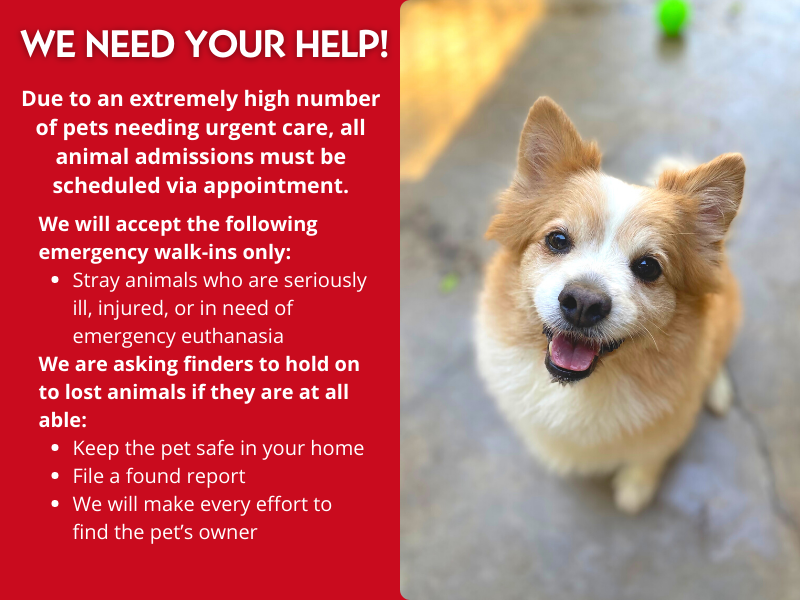The Hawaiian Humane Society regularly engages in efforts to improve our state and local animal laws. In the recently concluded legislative session, we helped to pass the following measures designed to protect animals and support the human-animal bond:
Act 221 Relating to Veterinary Medicine
The new law prohibits animal owners and their employees from performing any surgical procedures on the owner’s pet animal or pet animals and provides that a violation of the prohibition is a misdemeanor. It clarifies that the offense of cruelty to animals in the first degree does not apply to accepted veterinary practices when the practices are performed by a licensed veterinarian and repeals exemption of cropping and docking as customarily practiced under the offense of cruelty to animals in the first degree. It takes effect upon approval.
This represents a multi-year effort to close loopholes in the veterinary licensing and animal cruelty statutes that owners have used to operate on their own pet animals, or hire unqualified people to do so, resulting in pets being harmed by backyard surgeries ranging from ear-flap removal to cesarean sections. The Hawaiian Humane Society opposes cosmetic surgery on animals, but while this measure does not ban ear-cropping and tail docking in pet animals, it does require that such procedures must be performed by a licensed veterinarian. It is a good step toward reducing animal suffering.
Act 224 to Dangerous Dogs
The new law establishes the offense of negligent failure to control a dangerous dog, creates a felony penalty for a bite incident that maims or kills a human being, and stipulates rules regarding the impoundment of dangerous dogs. Those provisions take effect July 1. Beginning July 1, 2025, it establishes provisions regarding the designation of dangerous dogs and requirements for owners of dangerous dogs. The one-year delay is meant to provide the three counties that contract out animal services with time to establish a system of due process regarding the designation of dangerous dogs.
This law was inspired by community heartache over inadequate penalties available to punish dog owners following fatal attacks on Hawaiʻi Island. It supports the interests of public safety, while also establishing provocation and impoundment provisions designed to reduce animal suffering. It will prevent dogs from being punished unfairly and it will reduce the risk that animals will be confined for extended lengths of time while court cases proceed.
Act 208 Relating to Fireworks
The new law authorizes law enforcement and fire officers to enter and inspect any licensee’s or permittee’s premises, under certain conditions, to verify compliance with the State’s Fireworks Control Law. It establishes procedures for the Department of Law Enforcement to conduct administrative inspections of controlled premises. It requires certain licensees and permittees to keep records and maintain inventories, and to report any stolen fireworks or articles pyrotechnic. It authorizes the Department of Law Enforcement, in addition to the counties, to enforce the Fireworks Control Law. It takes effect July 1.
The Department of Law Enforcement has done great work in the past year to interdict illegal fireworks and punish the people who are bringing explosives into our neighborhoods. These additional tools are meant to help it build on that progress.
Resolution HCR171, SD1 HCR171 SD1
This resolution asks the state and county agencies responsible for removing deceased dogs and cats from public roadways to check for, scan, and record the microchip of the deceased dog or cat, if any, and certain other information; and timely notify county animal services or animal service contractors of the deceased dog or cat, including the recorded information.
While resolutions do not have the force of law, they are a strong statement of intent by the Legislature and when they are directed at government agencies can encourage compliance. We will be working with the state Department of Transportation, Highways Division, and the City and County of Honolulu Department of Environmental Services on a system for getting this information out to pet owners.
Act 230 Relating to the State Budget
Prison Pet Foster Pilot Program
The state budget bill included funding for a pilot pet foster program for the Women’s Community Correctional Center on Oʻahu. Hawaiian Humane looks forward to working with the state Department of Corrections and Rehabilitation to save animal lives and lift the spirits of the women in its care through what we expect will be a living testament to the power of the human-animal bond.
Spay/Neuter Funding
A state operating grant awarded to the Hawaiian Humane Society will support spay/neuter services for pets of houseless individuals and pets being offered for adoption by the small-foster based groups that are members of the O’ahu Animal Welfare Alliance. They are Aloha Animal Outreach, Fur-Angel Foundation, Hawaii Dog Foundation, KAT Charities, Lucky Paws Animal Foundation and PAWS of Hawaii.
Disaster Preparedness
A state capital improvement project grant awarded to the Hawaiian Humane Society will allow for the acquisition and installation of hurricane screens/sheeting to disaster proof our two locations in ‘Ewa Beach and Mō’ili’ili. On any given day, hundreds of animals are in Hawaiian Humane’s care. The ability to secure those animals and our facilities in the event of a natural disaster is essential to allowing us to provide additional services to the community.

